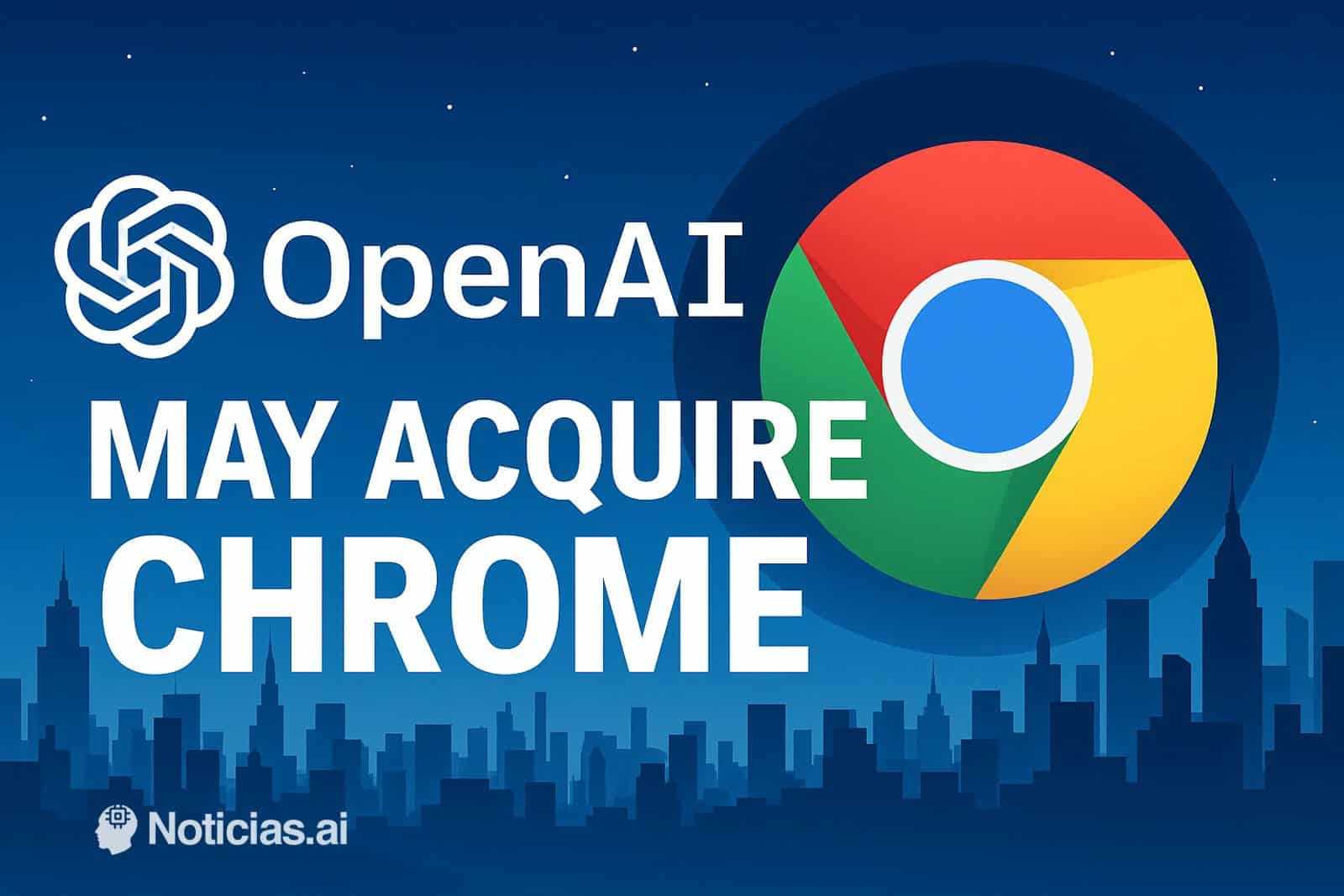The antitrust trial between Google and the U.S. Department of Justice threatens to profoundly alter the power landscape on the internet. One of the measures being considered by regulators is to force Google to sell Chrome, its web browser, currently used by nearly 70% of users worldwide.
In this context, OpenAI has been the first to publicly show interest in acquiring Chrome. But it’s not alone. In a market dominated by the rise of foundational models and generative AI assistants, other leading companies in the sector may also have clear motivations—and technical capabilities—to attempt to acquire the browser if its sale is confirmed.
OpenAI, the first to raise its hand
During a hearing before the federal court in Washington, Nick Turley, head of product for ChatGPT, confirmed that OpenAI would be interested in acquiring Chrome if Google is forced to divest the browser. According to Turley, the exclusive agreements that Google maintains with manufacturers of Android devices hinder the distribution and integration of technologies like ChatGPT.
For OpenAI, Chrome would serve as a direct gateway to the internet for millions of users, allowing it to distribute its technology without relying on intermediaries or being subject to external ecosystems.
But OpenAI is not the only candidate with strategic interest
While the San Francisco-based startup leads the language model market in terms of adoption and visibility, other AI-focused companies may view the acquisition of Chrome as a way to strengthen their competitive position in the new paradigm of AI-assisted browsing:
1. Anthropic
The company founded by former OpenAI employees has emerged as a key player in the sector, particularly following the success of Claude. Its focus on safety and alignment makes it attractive for deep integrations in browsers. Owning Chrome would enable Anthropic to foster a conversational AI-centric search and browsing experience without relying on agreements with third parties.
2. Cohere
Specializing in providing LLM models for businesses, Cohere could leverage Chrome as a platform to build browsers oriented towards professional workflows or internal search solutions for the corporate sector. Its interest would lie in offering controlled environments, with direct integration with private and secure models.
3. Mistral AI
The European startup that promotes lightweight and efficient models, such as Mistral 7B and Mixtral, could utilize a browser like Chrome to advocate for an open alternative to AI-assisted browsing, especially in markets where digital sovereignty is a growing concern. With the backing of European funds, it could consider a bid as a strategic gesture.
4. xAI (Elon Musk)
The AI company of Elon Musk, which has already released its own models and controls platforms like X (formerly Twitter), could use Chrome to close its digital ecosystem: a proprietary browser, with a search engine, social network, AI model, and integrated hardware. This would align with its strategy of vertical control over the entire digital experience.
5. Stability AI
Better known for its work on generative image models (such as Stable Diffusion), Stability AI has begun exploring language models. Acquiring a browser could provide it with a platform to combine text, image, and code generation directly in the browsing experience.
Beyond the browser: control of the main AI interface
The potential change of hands for Chrome should not be viewed solely as a market share issue for browsers, but as a repositioning of who controls the main interface for interacting with artificial intelligence.
As traditional search engines are replaced—or complemented—by conversational assistants, the browser becomes a crucial space where intelligent agents, semantic searches, content generation, and productivity tools are integrated.
The future of the web may not involve Google
If the sale of Chrome is confirmed, the digital ecosystem could experience a decisive shift. For the first time in two decades, web browsing would no longer be controlled by a single company. And its new owner—OpenAI or any other emerging AI firm—could redefine the internet experience around artificial intelligence, definitively displacing the traditional search paradigm.
Conclusion
Chrome is much more than a browser: it is a strategic platform. Its sale would open up a competition to define how we navigate, what we see, which tools we interact with, and above all, which model of artificial intelligence accompanies us with every click. Whether OpenAI leads that transition or not, there are several AI players ready to take the reins.
Source: AI News

